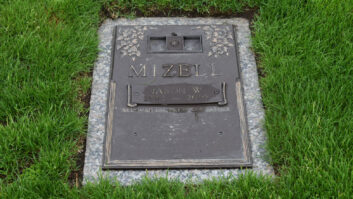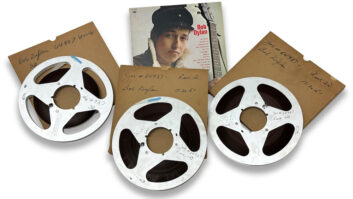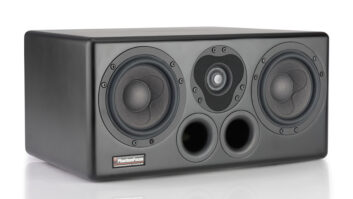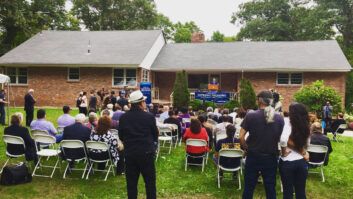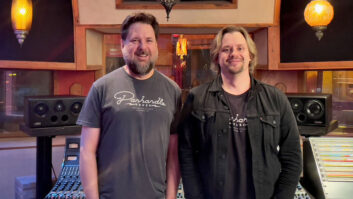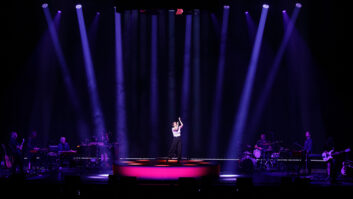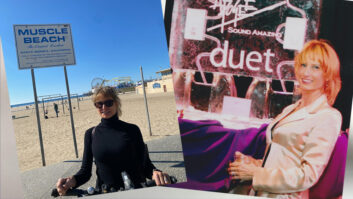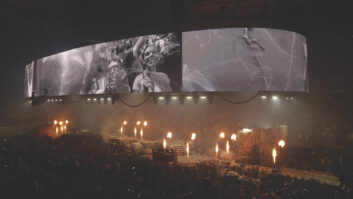In response to changes in the record industry, veteran mastering engineer Ron Boustead has established Resolution Mastering in his guesthouse. LOS ANGELES, CA—While the digital audio revolution helped launch the project studio business, mastering engineers, with their very specific equipment and acoustical requirements, have largely continued to occupy purpose- built commercial spaces. One exception is Ron Boustead, a veteran engineer with a long work history (and a long list of credits) at Hollywood’s Precision Mastering, who has established Resolution Mastering at his home in L.A.’s San Fernando Valley.

Boustead was inspired to cut the commercial studio cord by one of his best clients, mixer Dave Rudeau. “He works out of his condo; he has a really great listening space and a giant Pro Tools rack, and he’s been doing that for four or five years. He gets a great result, and can charge a reasonable rate,” says Boustead, who figured there was no reason why he couldn’t create a similar environment for mastering.
Boustead admits he was initially reluctant to move out of a commercial facility after so many successful years at Precision—where he cut a lot of vinyl—and, for a period, at CMS Mastering in Pasadena. But there were certainly outside pressures, he observes: “The budgets all got smaller, mu sic went indie, and people just seemed less interested in going to a major facility and spending big bucks on mastering. People even started wondering if it was worth spending money at all on mastering.”
The solution was literally in his own backyard. “The trick for me was to be able to keep my clients and gain some new ones along the way, and meet a price point that made sense for today’s music business. The only way to do that for me was to not have a big rent somewhere, and not have a big nut as far as buying as bunch of gear. Fortunately, I had this guesthouse sitting here waiting for me to turn it into a mastering room.”
The relatively small size of the room was a challenge, he admits. “I had to get the positioning of the speakers just right, I had to get the soundproofing just right, and I had to have a really small desk to keep as little between me and the speakers as possible.”
Locally based acoustician Steven Klein helped Boustead get the sound just right, but, he says, “The biggest coup for me was finding exactly the same pair of monitors that I’d been listening to at Precision all these years—Infinity Kappa 8s. I found them on eBay. That took a giant variable out of listening in a new room.”
After years of using a minimal outboard complement at Precision, Boustead had no problem streamlining his home setup. The choice of monitor type also came from his previous environment. “Instead of listening to studio monitors, we listened on high-end hi-fi speakers. We’re not mixing, we’re trying to figure out how something is going to sound in a realistic environment.” The room is equipped with alternate sets of hi-fi speakers and, he says, “I go to my mobile laboratory occasionally, Studio B—my Prius!”
A jazz singer and musician who moved to L.A. to further his career, Boustead has released several solo albums, and has had numerous songs recorded by major artists. These days, his mastering projects are typically smooth jazz or singer-songwriters, he reports.
But while in the past clients would attend a mastering session, now, he observes, 80 percent of his projects are unattended. “I have clients all over the world, but even local clients don’t want to fight the L.A. traffic! So I have an ftp site.”
To ensure there are few, if any, surprises, Boustead encourages clients to send him mp3 files as they are mixing. “That’s been incredibly valuable, because we can avoid some pitfalls, and at the end of the day, I don’t end up in damage-control mode. I love working that way, getting involved while they’re mixing and giving them a little bit of feedback along the way.”
Cognizant of the so-called loudness war, he comments, “I’m constantly trying to find that sweet spot where it’s loud and punchy enough that the client is going to be satisfied, and yet I haven’t squeezed the life out of it or added any graininess along the way. That’s where I think a lot of the home mastering people and semipros fall short. They can get it loud, but it’s going to be grainy and fatiguing to listen to.”
If anything, the mastering process may have an even bigger role to play now than in the past, he believes. “In my opinion, now that more and more music is being recorded in project studios by engineers who, frankly, have less experience than engineers used to, they need a qualified mastering engineer more than ever. A big part of the battle these days is the degradation of the sonic quality of music. Some of us are holding on and trying to keep the standard as high as we can.”
Resolution Mastering
resolutionmastering.com
